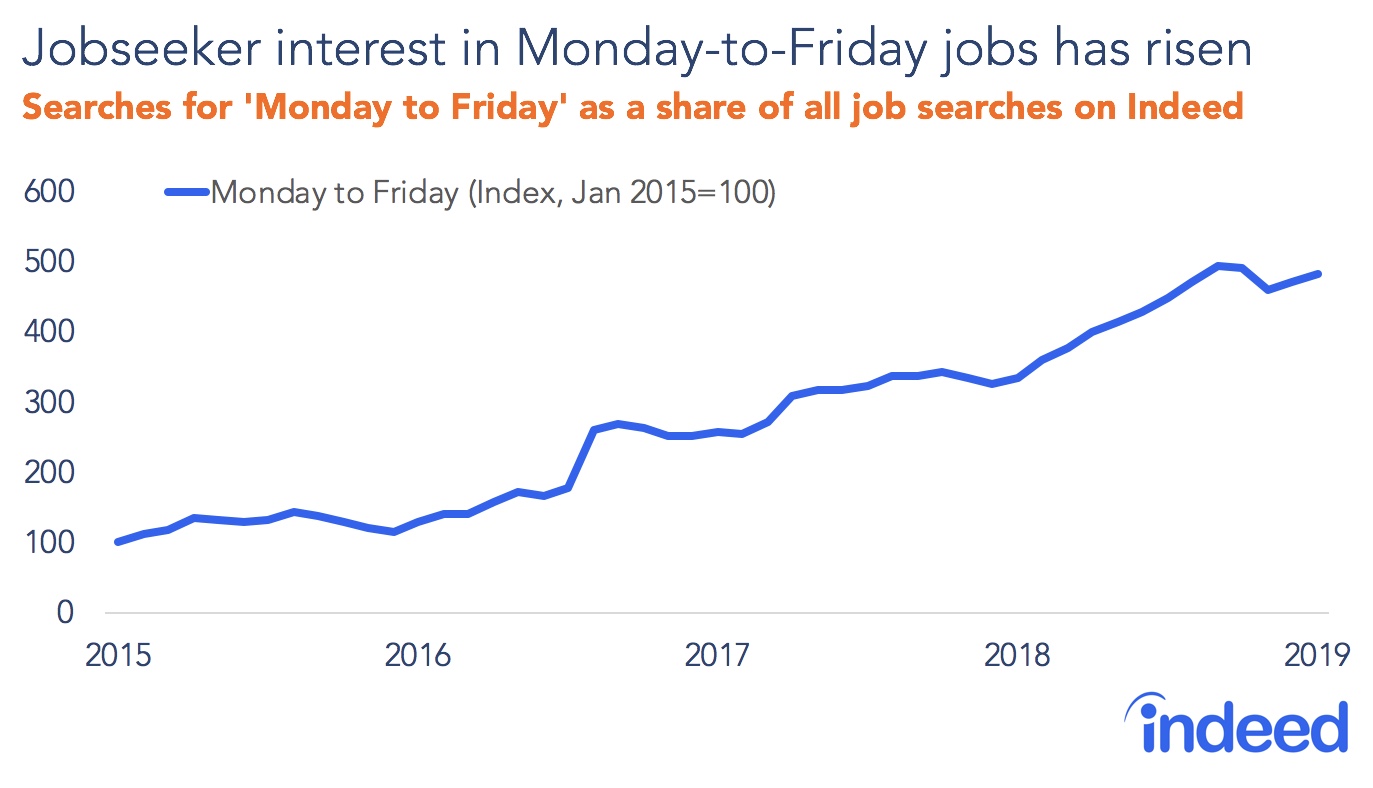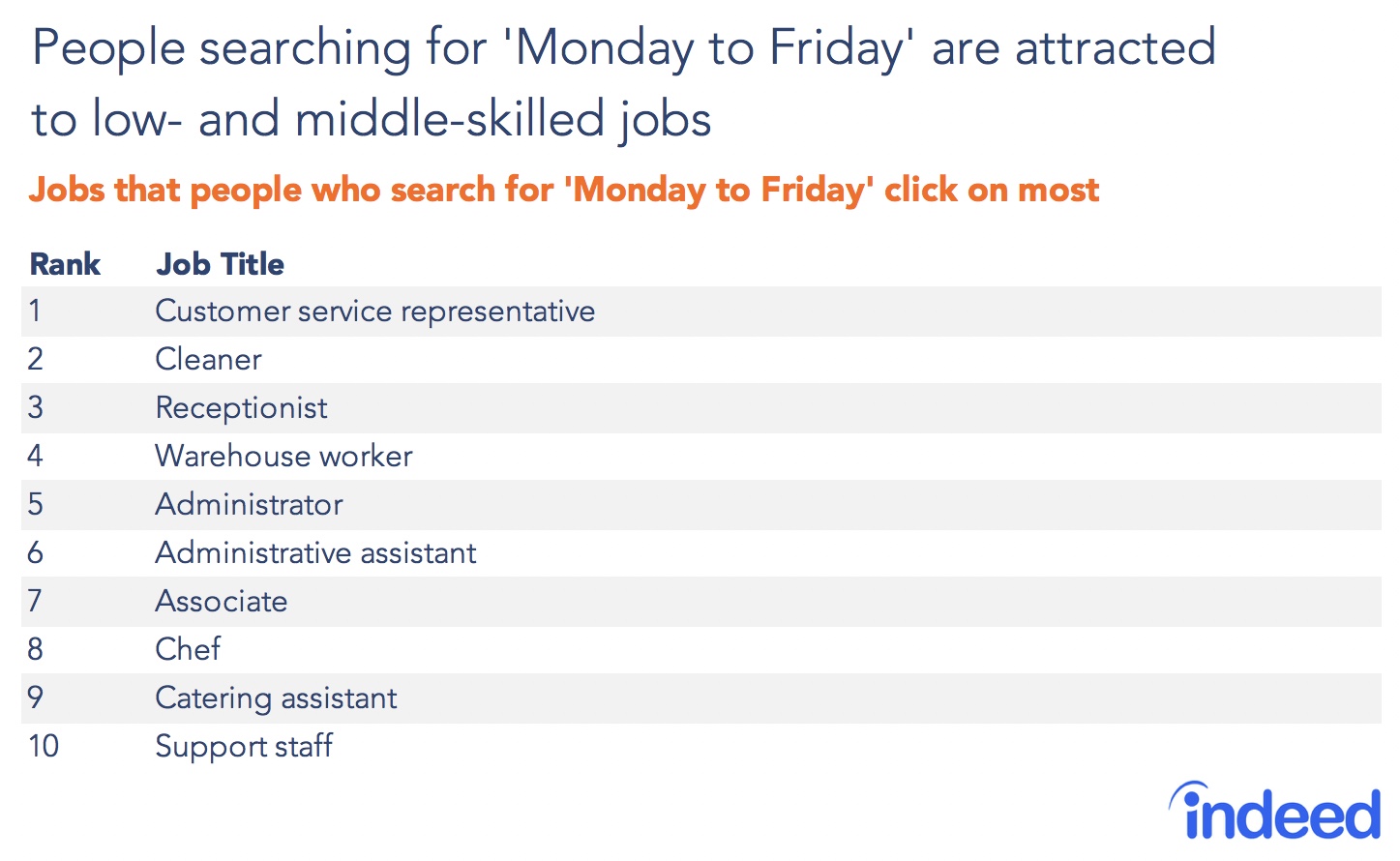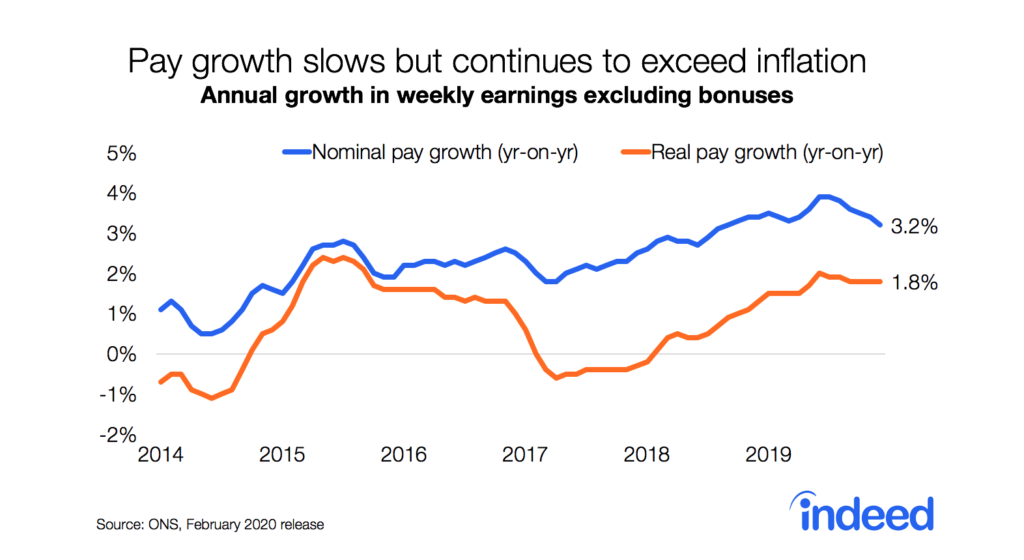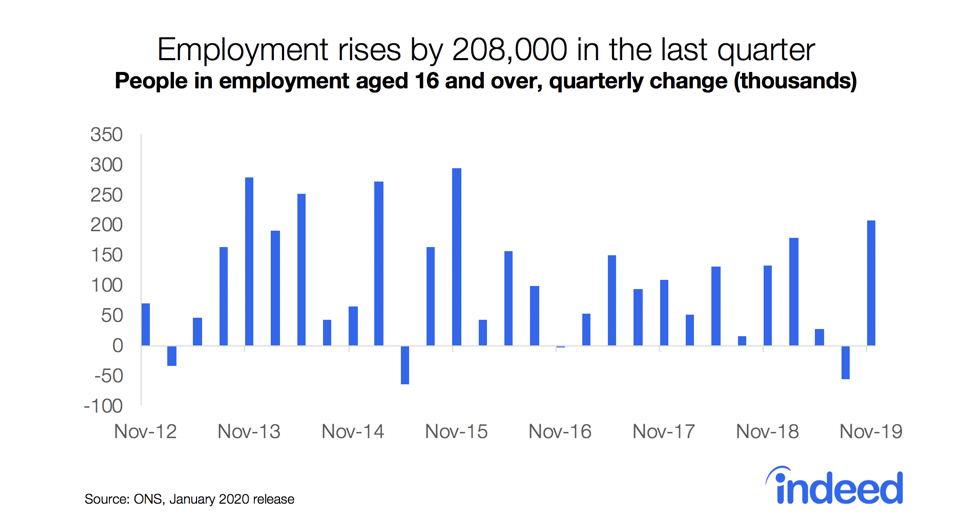As employment in the UK surges to a new record high and getting a new job becomes easier, we might expect that the way people search for jobs is changing too. We wondered whether the search terms jobseekers type into Indeed.co.uk might be changing as candidates become more selective in the jobs they consider. One way to see this is to look at the requirements jobseekers specify regarding the time patterns they are willing to work.
One of the fastest-growing job search terms in recent years has been ‘Monday to Friday’. As a share of all job searches on Indeed, those specifying ‘Monday to Friday’ increased approximately fourfold between January 2015 and December 2018. At the same time, searches using keywords related to evening and weekend jobs maintained a relatively stable share.

We looked at the jobs on which people who searched for ‘Monday to Friday’ clicked on Indeed in 2018. We found those jobs were predominantly full-time (74%) and mainly low-skilled. We also looked at anonymised data from CVs uploaded to Indeed and extracted information on current employment status. We found that, among people with up-to-date CVs on the site, 70% of those who searched for Monday-to-Friday jobs were already employed rather than being first-time jobseekers, for example.

One possible explanation of these results is that people searching for Monday-to-Friday jobs are workers with irregular schedules looking for greater stability. While the trend in these searches could stabilise at some point once more people with irregular work patterns transition successfully to more stable schedules, it is important for employers to take note of the growing preference for weekday work. As hiring difficulties rise and jobseekers become more selective, offering full-time positions with regular schedules to existing employees who want them may improve retention. Retaining workers is crucial in a competitive labour market because it reduces the cost and effort associated with hiring replacements.
Of course, some employees prefer irregular schedules or odd hours. Searches on Indeed using terms related to working from home, flexible hours or remote work have also risen over time. In part, this may be because rising numbers of people from groups that require such flexibility, like single parents and people with disabilities, have been joining the workforce. The takeaway is that employers who struggle to hire may want to consider what kinds of work arrangements meet the needs of different segments of their workforce.






